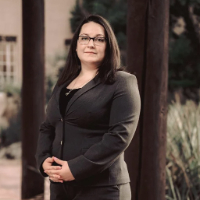 Paguate Divorce & Family Law Lawyers, New Mexico
Paguate Divorce & Family Law Lawyers, New Mexico
Sponsored Lawyers
1-10 of 34 matches
Divorce & Family Law
Rita has worked in many areas of the legal profession from matters as simple as residential real estate to as complex as immigration. Through it all, her passion for family law has been the driving force in her professional career. Rita now works exclusively in family law matters such as divorce, custody, domestic violence, and guardianship cases. Rita uses her background in all areas of law, sociology, and psychology to provide a holistic approach to her client’s legal matters. She is very happy to amicably resolve any issue by crafting a legally binding agreement between family members in an effort to save her clients time, money, and sanity. Nevertheless, Rita is not shy about being a bulldog to fight for her client's best interests in court.
(more)Divorce & Family Law, Criminal, Business
The Foghi Law Firm was founded by Boglarka Foghi in 2009, specializing in criminal defense, family law, and business law. Managing Partner Boglarka Foghi brings years of experience as both Senior Prosecuting Attorney for Sandoval County, NM, and as a Public Defender for indigent clients. Her Juris Doctor degree was conferred in 2001 and earned at the prestigious John Marshall Law School in Chicago, IL. The daughter of Hungarian immigrants, she embraced the American dream and enthusiastically pursued her dream of becoming an attorney. She also holds an MBA from Dominican University in River Forest, IL. She has established a reputation for expertise and is known as an excellent trial attorney. She loves to be in the courtroom, passionately defending the rights of her clients. All clients receive the same level of skilled attention, whether by private retainer or referral through the Sandoval County Public Defender program. Clients can expect compassionate and knowledgeable advice from a seasoned professional with an extensive legal background. In her spare time, Boglarka Foghi, who speaks fluent Hungarian, enjoys spending time with family and friends and is active in the Sandoval County community. An avid dancer, she’s been a Latin dance competitor, instructor, and choreographer and enjoys staying fit. She was crowned Mrs. New Mexico in 2008, and helped increase awareness of legal issues and resources throughout the state.
(more)





